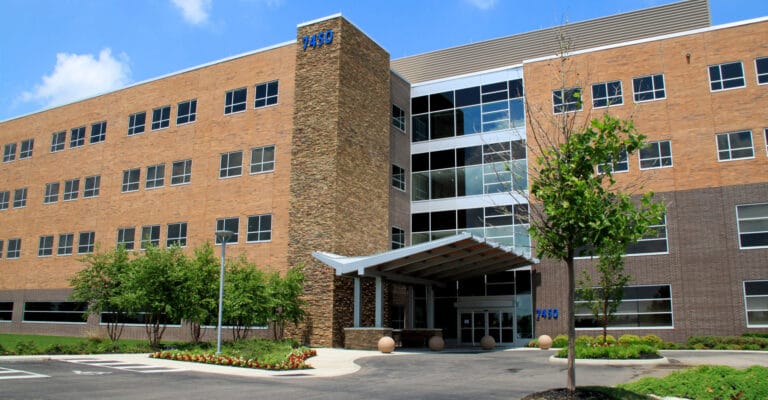Although eating healthily is important throughout your life, it is extremely important during pregnancy. This is because you are not only eating for yourself but also for the nutrition of the new fetus growing inside of you. The larger your baby grows, the more nutrients it will need. It is important to know what are healthy choices of food, as well as what amount of weight is healthy to gain during pregnancy. This page covers basic information about nutrition during pregnancy and what you should do for your baby.
SHOULD I EAT MORE HEALTHILY EVEN BEFORE I GET PREGNANT?
Yes. This is one of the most important times to eat healthily because it allows you to start your baby off with a balanced, nutrient-rich place to grow. If you are planning on getting pregnant in the near future, it is never too early to start eating correctly and taking vitamins to help your body.
HOW CAN I START EATING HEALTHILY?
The first and most important way to begin eating healthy is to assess what your current diet consists of. During pregnancy, sometimes tastes change, and women may begin to crave food that is unhealthier for them and consume them in greater quantities. It is important to eat a wide variety of foods that have all different nutrients in them. By assessing your eating habits, you can find out what is good for you and your baby and what is not.
Many women find that having several small meals throughout the day than three large ones is much better for them. This is because it eliminates the need to binge eat, as well as reduces nausea and heartburn. However, it is important to make these meals healthy.
Eating healthy is not just about eating new foods that are better. It is also very important to eliminate and avoid foods and substances that are bad for you. This includes sugary, fatty foods that are not healthy for you or your baby and don’t contain nutrients. It also includes staying away from alcoholic beverages and illegal drugs such as marijuana, because the ingestion or use of all of these can cause severe birth defects and even death. It is also important to not smoke because it is extremely toxic for the baby. Avoiding caffeine is also important while you are pregnant.
HOW SHOULD I PLAN HEALTHY MEALS?
It is important to get all the servings of nutrients you need during pregnancy. Planning your meals in accordance with the food pyramid standards can help you achieve this. The food pyramid is a tool that shows different types of foods and their nutrients, as well as how many servings of them you should have a day. There are six different types of good nutrients on the food pyramid:
- Grains
- Vegetables
- Fruits
- Oils
- Milk
- Beans and Meat
The food pyramid is a good way to find out which foods contain which nutrients. Every diet should contain carbohydrates, protein, minerals, vitamins, and fats, and learning about each food group can help you get all these nutrients. Many packaged foods come with a label concerning the food’s percent daily value. During pregnancy, these daily values should be higher, since you are eating for your baby as well.
Pregnant women should also get extra nutrients for their babies. This can be accomplished by taking vitamins. Every woman should take folic acid supplements daily, as well as iron supplements, which can protect against neural tube defects in their babies.
HOW MUCH WEIGHT SHOULD I GAIN DURING MY PREGNANCY?
Since you are eating for the growth of your baby, it is important to gain at least some weight during pregnancy. However, the amount you should gain depends on your current weight. If you are at an average weight, you should gain anywhere from 25-35 pounds during pregnancy. If you are overweight, you should gain less than this, around 15-25 pounds. If you are obese, you should not gain any more than 15 pounds. If you are underweight, you will need to gain more weight- around 28-40 pounds. However, if you are pregnant with twins, you will need to gain 35-45 pounds in order for them to be healthy.
While you are pregnant, you will need to eat additional calories during the last 6 months than you normally do. This is very important because it helps your baby get enough nutrients to grow and be healthy.
WHAT IF I AM A VEGETARIAN OR I AM LACTOSE INTOLERANT?
If you are a vegetarian, it is still possible to continue your diet during pregnancy. However, there are certain steps you must take to ensure you get all the nutrients your baby needs during pregnancy. You will have to plan your meals so that you are able to get the nutrients that are found in meat, eggs, or dairy that you miss. This can be done by taking supplements (especially folic acid), as well as drinking and eating substitution foods.
If you are lactose intolerant, you may notice an improvement in your symptoms, such as nausea, gas, and indigestion. This means that you may be able to get your daily servings of calcium. However, if you cannot, it is important to talk to your doctor about any supplements you should take. You can also get calcium from other foods, like certain types of fish, fortified orange juice, yogurt, and spinach.
ARE THERE ANY SPECIAL DIETARY CONCERNS I SHOULD KNOW ABOUT?
There are several dietary problems that can arise from certain foods that are harmful to your pregnancy. These problems include:
- Mercury Intake: Mercury is a substance that can be very harmful to you and your baby during pregnancy. High levels of mercury are found in certain kinds of fish, and these should be avoided during pregnancy. In order to avoid mercury poisoning in your baby, avoid eating albacore tuna, tilefish, swordfish, shark, or king mackerel during pregnancy. It is okay to eat other types of fish in small amounts.
- Pica: Pica is a condition where someone has the desire to eat non-food items. Many pregnant women experience urges of pica and attempt to consume items such as grass, ice, clay, cornstarch, or baking soda. Pica can be serious, as it can limit the nutrients your baby gets, as well as causing constipation and anemia. Speak to your doctor if you are concerned about Pica.
- Listeriosis: Listeriosis is a disease that comes from eating unpasteurized dairy products and uncooked or ill-prepared meat. Uncooked/unpasteurized items may contain bacteria that can infect a woman if she eats them and can prove to be very harmful to her and her pregnancy. Symptoms of Listeriosis include chills, fever, back pain, and muscle aches, and they usually occur several weeks after eating the food. Since the symptoms are similar to those of the flu, they can make diagnoses difficult. When found, Listeriosis can be treated with antibiotics. In order to prevent infection, do not eat raw, uncooked, or unpasteurized foods that may not be clean. Make sure to wash your hands, cooking utensils, and areas in your house where you prepare food.
IN CONCLUSION
Pregnancy is a very exciting time that is full of changes and new experiences. The best thing you can do for your growing baby is to eat healthily. Talk with your doctor about nutrition during pregnancy and how you should adjust your diet needs. Avoid the temptation to “eat for two”!







